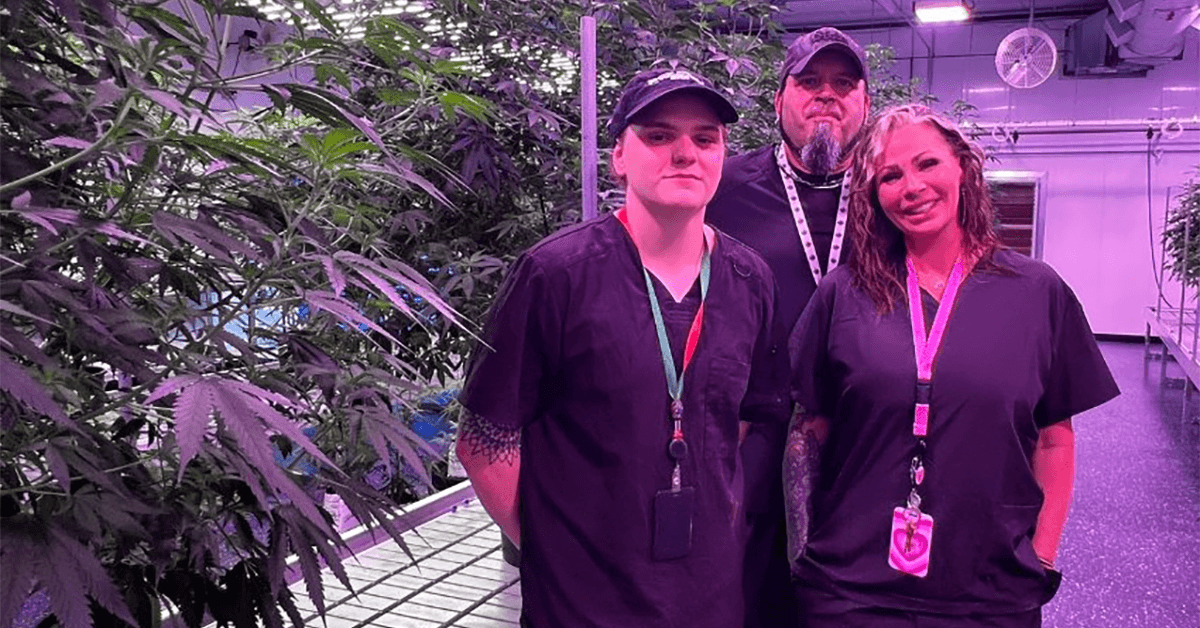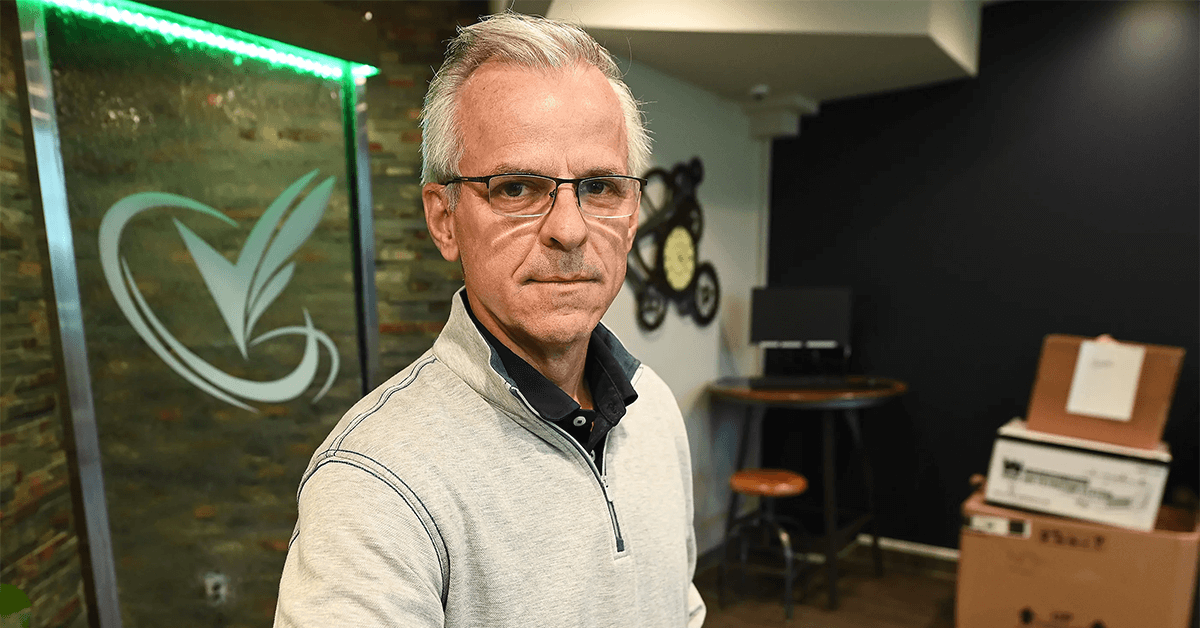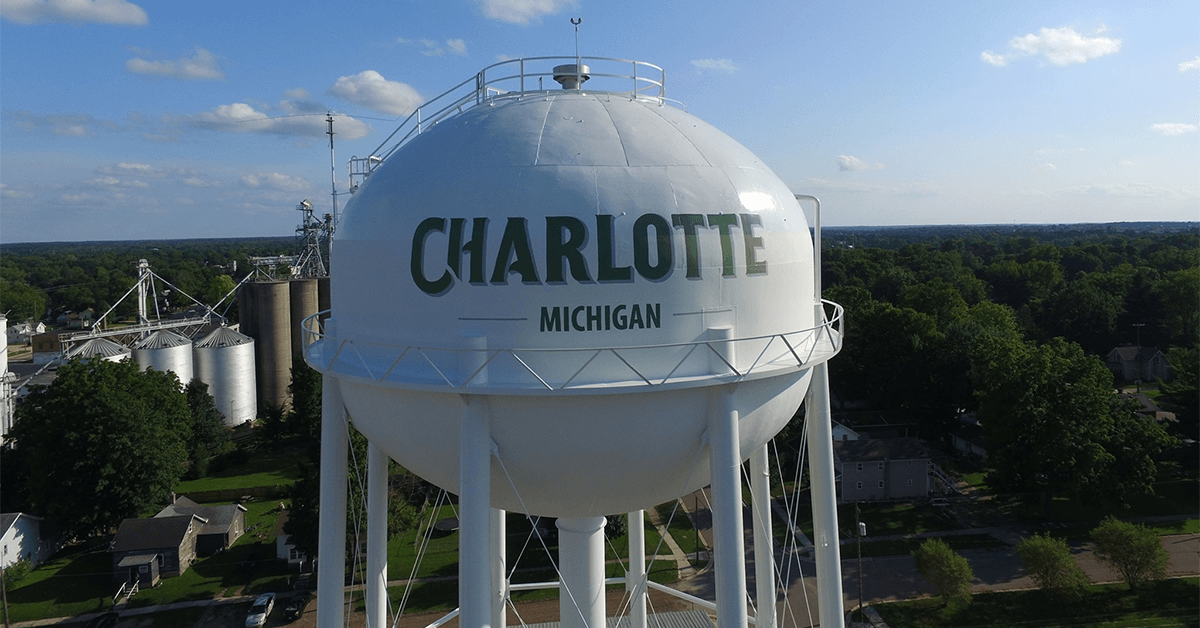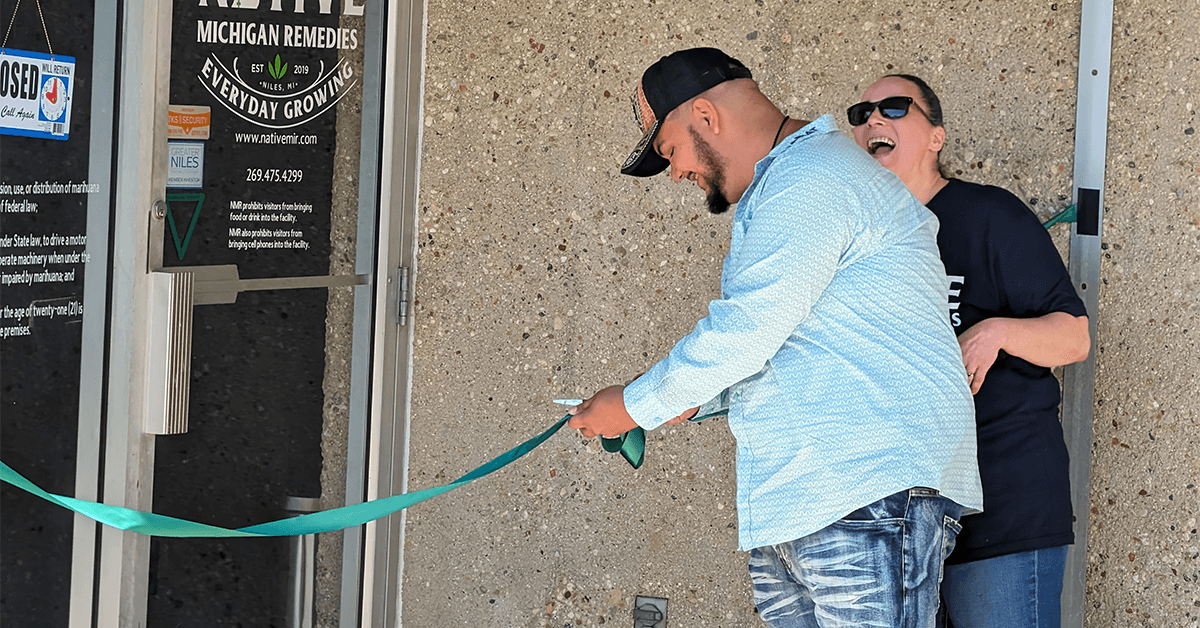Suspect in Custody Following Shooting at Saginaw Cannabis Facility

A shooting at a cannabis grow operation in Saginaw resulted in one man being hospitalized and another taken into custody.
The incident occurred around 9 a.m. on Monday at a facility located in the 2000 block of South Niagara Street, where the cannabis cultivation operation is situated.
According to the Saginaw Police Department, a 51-year-old man contacted 911 to report that he had shot a 42-year-old man. Upon arrival, officers discovered the victim with a gunshot wound to the chest.
The injured man was transported by ambulance to a nearby hospital. As of Tuesday, his condition was reported as stable, though the specific details of his injuries remain unknown.
Authorities have arrested a suspect in connection with the shooting. His identity has not been released pending his court arraignment.
As of Tuesday, Saginaw police have not provided information regarding the possible motive behind the shooting.
Former Battle Creek Caregivers Advocate for 'Clean' Cannabis Across Michigan

Five years ago, Melanie White-Lavender and her husband, Matt Lavender, began cultivating cannabis in their barn in southwest Michigan. What started as a modest caregiver operation aimed at helping a few patients has blossomed into a significant business driven by a mission to provide high-quality, clean cannabis to those who need it most.
The couple's journey into cannabis cultivation was deeply personal. White-Lavender's father, diagnosed with cancer, found relief in cannabis, allowing him to abandon pharmaceuticals and remain comfortable in his final years. Similarly, a close family friend, who survived a near-fatal motorcycle accident, used cannabis edibles to manage his pain and eventually made a full recovery.
"We've always believed more in the medicinal side of cannabis and treating it like the medicine that it is for so many people," White-Lavender said. "It's always been about helping people."
These experiences inspired the Lavenders to leave their day jobs in 2019 and launch Evolution Cannabis, a name reflecting their growing and evolving operation.
From Small Caregiver Operation to Major Producer
Today, Evolution Cannabis operates on a much larger scale while maintaining its original mission. The company expects to harvest over 10,000 pounds of cannabis this year from its 30,000-square-foot cultivation campus near Battle Creek. An on-site lab produces more than 36 million cannabis-infused gummies annually, distributed to nearly 200 dispensaries across Michigan. Additionally, with two House of Evolution dispensaries open and two more set to launch this year, the Lavenders have established a comprehensive supply chain.
"We just want to send people away with a great cannabis experience," White-Lavender said. "It's all about good vibes with us. We don't just churn and burn through our products. We don't cut corners. You need to treat these plants right, and a lot of that is just about having the right people, and keeping eyes, and ears, and all the attention on them."
Commitment to Quality and Safety
Despite their rapid growth, Evolution Cannabis has maintained a strong commitment to quality and safety. This includes stringent measures like requiring all staff and visitors to don protective gear and pass through an industrial air blower chamber to prevent contamination.
Automation plays a significant role in their cultivation process, allowing the staff to monitor and adjust light, airflow, temperature, humidity, and nutrient flow using a single iPad. This meticulous control ensures potent and flavorful harvests.
The company's products include vegan and gluten-free edibles made from scratch with natural ingredients, reflecting their dedication to quality and health.
"Many of our clientele are cancer patients and people with real medical needs, so we always take our time to do things the right way," White-Lavender said. "That's super important for us."
Avoiding Remediation for Purity
Evolution Cannabis stands out in the industry by refusing to remediate their cannabis—a process used to remove contaminants but which can negatively affect flavor, potency, and texture. By relying on their rigorous cultivation and processing standards, they aim to produce cleaner and more flavorful cannabis without the need for remediation, even if it means taking on greater business risks.
"Everybody cares about low prices, and it's getting to the point where some of this bottom-barrel stuff out there could really hurt people," White-Lavender said. "I'd love to be swimming in money right now, but this isn't about that. This is about giving people the best—and cleanest—product."
Looking Ahead
As Michigan's cannabis market continues to grow, White-Lavender hopes more consumers will recognize the value of brands that prioritize quality and safety. She envisions a "Clean Cannabis Campaign" to encourage other Michigan brands to adopt similar standards.
"Let's face it. It's hard to stay relevant in this market," she said. "We don't have giant pockets. We don't have the same crazy marketing budget as everybody else. We're keeping things tight because we're focused on the products, and we care about customers' pocketbooks as well. We want to offer a high-end product at an affordable price, and that's not always easy, but we're not quitters. There's a reason we've been able to come this far, and we're not going anywhere."
Viridis Laboratories and CRA Conclude Hearings in Extensive Legal Dispute

For nearly two and a half years, Michigan's cannabis industry has been closely monitoring a significant legal dispute between state regulators and Michigan's largest cannabis testing facility, Viridis Laboratories. This conflict, stemming from one of the most extensive recalls in the state's young cannabis industry, has led to extensive legal proceedings and could significantly impact future regulatory practices.
The administrative hearings between Viridis Laboratories and the Michigan Cannabis Regulatory Agency (CRA) concluded last Wednesday after multiple days of testimony. Although the hearings have ended, the legal process is far from over. Both parties will submit written closing briefs and responses over the next six months, and subsequent appeals are anticipated even after a final decision is made.
Central to this litigation are questions about Viridis' compliance with testing methods designed to accurately detect contaminants and measure the potency of THC, the psychoactive compound in cannabis. Testimony from these proceedings reveals a complex narrative involving historical complaints, the company's founders' connections to the Michigan State Police, and allegations that Viridis was unfairly targeted by CRA employees after raising concerns with Governor Gretchen Whitmer's office.
Viridis Laboratories CEO and founder Greg Michaud questioned the state's motives, suggesting that the recall and subsequent legal actions were efforts to justify initial allegations against the company. "You've got to step back and ask yourself: Why is the state using so many of their resources targeting one agency on what basically, it is saying, is an unapproved potency method?" Michaud stated.
The CRA declined to answer specific questions, pointing instead to extensive hearing transcripts. The agency is currently advocating for legislative changes to allow it to collect, possess, and test cannabis through a state-run lab to establish standards for licensed testing facilities.
Attorney Michael Komorn, a veteran cannabis defense lawyer, emphasized the industry's focus on the case. "If true, it creates a potential health risk for the consumer, which is contrary to what the regulated system purports to provide," Komorn said regarding the allegations exchanged between Viridis and the state. He underscored the importance of this case in the regulated market since 2016.
In May 2022, the CRA issued updated complaints against Viridis, alleging issues with potency, microbial and foreign matter contamination, and quality management. The CRA's interest in Viridis was reportedly driven by concerns over inflated THC potency, but flaws in Viridis' contaminant testing ultimately led to the recall.
During a hearing, the state presented data indicating that several of Viridis' tests for the mold aspergillus were overturned by retests from other labs. Despite Viridis' lower failure rates for aspergillus compared to industry averages, CRA's Claire Patterson expressed concerns over the abnormal data.
Viridis has contested the state's findings, suggesting that the retest results were manipulated and that the sample fragments tested may not have contained the same contaminants. Over recent months, Viridis has attempted to prove in court that it was unfairly targeted by the CRA to diminish its market share.
Michaud testified that after expressing concerns about CRA's administrative rules and alleged unethical practices within the agency to Governor Whitmer's Chief Operating Officer, Tricia Foster, Viridis faced increased scrutiny. Foster reportedly dismissed Michaud's concerns, which Michaud believes marked the beginning of targeted actions against Viridis.
Former CRA employee Leeann Barrett testified that CRA scientist Allyson Chirio expressed persistent doubts about Viridis' testing methods, particularly its potency results. Chirio's comments, according to Barrett, were part of ongoing discussions about the validity of Viridis' scientific methods.
Viridis, run by former Michigan State Police employees, including Michaud, Chief Science Officer Michele Glinn, and Chief Operating Officer Todd Welch, has maintained its methodologies are robust and independently accredited. The company has continued to use its potency testing method, certified by third parties, despite ongoing disputes with the CRA.
Viridis' connections with the Michigan State Police extend to performing marijuana testing for the agency's Marijuana and Tobacco Investigations Section since 2020. Michaud highlighted the potential impact of CRA's allegations on these longstanding relationships and contracts.
Moreover, Averhealth, where Glinn serves as a toxicologist, faced scrutiny from the Michigan Department of Health and Human Services, which discontinued its use for drug testing in child custody cases. Averhealth had planned legal action against the state, alleging a breach of contract, though it later withdrew the notice.
As this protracted legal battle continues, its outcomes will be closely watched by the entire Michigan cannabis industry, shaping future regulatory practices and standards.
First Cannabis Provisioning Center Opens in Charlotte Amid High Hopes

After extensive research and community consultation, the City of Charlotte is opening its doors to cannabis dispensaries. This Monday marks the inauguration of the city's first cannabis provisioning center.
The idea of cannabis retail in Charlotte has been under consideration for several years, sparking both interest and controversy. Following approval by the local government last August, the city anticipates the arrival of multiple cannabis stores in the near future.
Mayor Pro-Tem Mike Duweck explained that the city has taken cues from other Michigan cities that host cannabis shops.
"Some residents are concerned about the potential increase in traffic these centers might bring. However, our police chief has conducted thorough research by reaching out to cities statewide to understand their experiences. The reality is that there have been virtually no issues," Duweck stated.
While the city has opted not to permit cannabis grow facilities, three provisioning centers have applied to open. One of these is Hollywood Jacks, founded by a local couple from Charlotte, aiming to open this summer.
"It's exciting. I've had to overcome the stigma and educate myself, much like many others," said Keisha Howe, Co-Owner of Hollywood Jacks.
Nearby, Harbor Farmz is preparing for a soft opening on June 10th, with a grand opening celebration scheduled for Saturday, June 15th.
"We are thrilled to be the first to open in Eaton County and the City of Charlotte. The community support, especially on social media, has been tremendous," said Mitchell Maltz, General Manager of Harbor Farmz.
For Charlotte, the addition of cannabis dispensaries is a strategic move to boost local revenue. Duweck anticipates significant financial benefits from the sales and property taxes generated by these businesses.
"Based on last year's data, each center could contribute approximately $65,000 annually to the city. For a town of our size, that's a substantial amount," Duweck noted.
High Society is the third facility to apply for a license in Charlotte, adding to the growing interest in cannabis retail within the community.
Native Michigan Remedies Launches Class A Microbusiness in Niles

An established cannabis business in Niles unveiled its new retail space to the community on Friday. After over five years of cultivating cannabis, Native Michigan Remedies (NMR) opened the doors to its Class A cannabis microbusiness at 2112 Industrial Dr., Niles, much to the delight of owner William Haas. The business marked the occasion with a ribbon-cutting ceremony on Thursday afternoon. NMR operates from 10 a.m. to 8 p.m., Wednesday through Monday.
"It feels good," Haas remarked. "It's a tough industry; it's not for the light-hearted or people with shallow pockets, so to finally have this open is great." The Class A microbusiness showcases a diverse range of "seed to shelf" NMR products alongside items from other growers. In Michigan, a Class A microbusiness license allows the holder to cultivate up to 300 cannabis plants, acquire mature plants from other licensed growers, and utilize external processors.
Haas co-founded NMR in 2019 with Brian Crespo, who now manages the NMR 2 processing lab with Haas' son, Skyler. NMR initially began as a cultivation facility before expanding to include the processing lab. The decision to pursue a microbusiness license was a strategic move to remain competitive in Michigan's dynamic cannabis industry.
"We're still small-town guys from Niles," Crespo said. "We know we have great products, and we understand the public demands our quality. To continue providing for our community and offering good jobs, we needed to pivot to a Class A microbusiness."
Both Haas and Crespo believe that their smaller operation enables them to produce high-quality products with meticulous attention to detail.
Public Debate Intensifies Over Proposed Bad Axe Cannabis Ordinance

Since Michigan's 2018 ballot initiative legalized recreational cannabis, the possibility of dispensaries opening in Bad Axe has been a topic of ongoing discussion. Recently, this issue reached a pivotal point with the drafting of a proposed ordinance.
The proposed ordinance has already undergone two public hearings with the Bad Axe City Council and the Bad Axe Planning Commission, awaiting a final vote.
Though the ordinance was not on the June 3rd city council meeting agenda, it was a focal point during the public comment segment.
Resident Kim Rosenthal voiced a common sentiment: "I think we've all heard the pros and cons on the marijuana ordinance. I think we are at the point where you should consider putting it on the ballot. Either way, people are going to be upset if you guys make the decision. I think the people in Bad Axe should make up their mind whether they want it or not."
Luke Deming, a vocal opponent from nearby Sheridan Township, reiterated his stance. "We need to look at the people, not the dollar amount. If you guys plan on trying to pass it, I would try to encourage the people of the city to write a referendum to force you guys on the ballot. I suggest you guys put it out for the people, otherwise, we will have to file a referendum and collect signatures to get it on the ballot."
Despite not being a Bad Axe resident and thus unable to sign a petition, Deming emphasized the importance of local residents having a say in the matter.
Concerns about the proposed dispensary also came from educators and religious leaders. Former educator Tim Laity and Faithway Church pastor Mike Beeler, both Bad Axe residents, expressed their opposition.
"I'm here to add my voice to those who are opposed to the idea of having a marijuana dispensary," Laity stated, citing issues with cannabis edibles among students as a significant concern. "As a former educator myself and someone who raised a couple of kids in this community, I would very strongly be opposed to the idea of a marijuana dispensary in this town."
Pastor Beeler echoed these sentiments, focusing on community and family values. "Everything about the business I'm in is about caring for people. We all understand that pot usage is legal and is coming into Bad Axe. It's available. We're not wanting a warehouse, we're not wanting a store and we're not wanting it in Bad Axe. I'm coming from the faith community and everything about my life has been about family. I raised three daughters here and I wouldn't want that. No one is struggling to get the product. I urge you to consider and re-evaluate the purpose for which this has become a priority in Bad Axe."
Members of the Bad Axe City Council appreciated the robust community involvement. Council Member Joel Harrison and Mayor Kathleen Particka both acknowledged the importance of public participation.
"I just want to say to the public thanks for coming to the last few meetings to share their opinion both good and bad," Harrison said. "I'm pretty sure everyone up here on the council loves hearing what you all think. It's really nice that the public is getting involved. We used to have meetings where all of the chairs in here were empty."
"It's amazing and I can't say it enough," Particka added. "It's nice to have people in the gallery."


 Helpful Links
Helpful Links